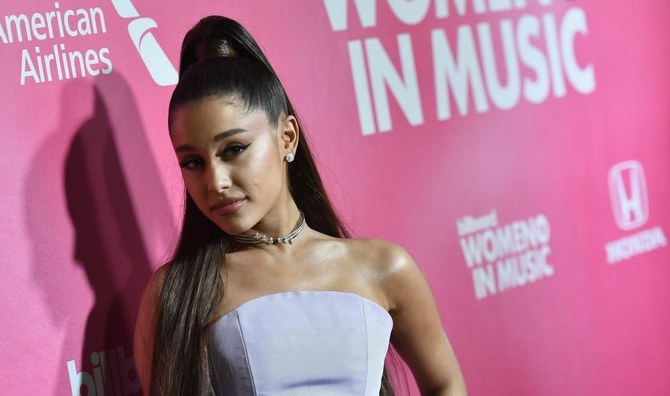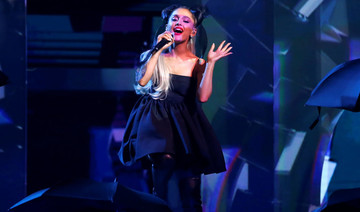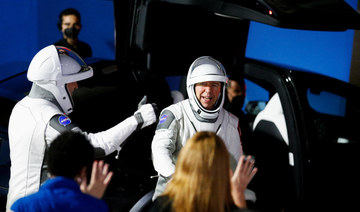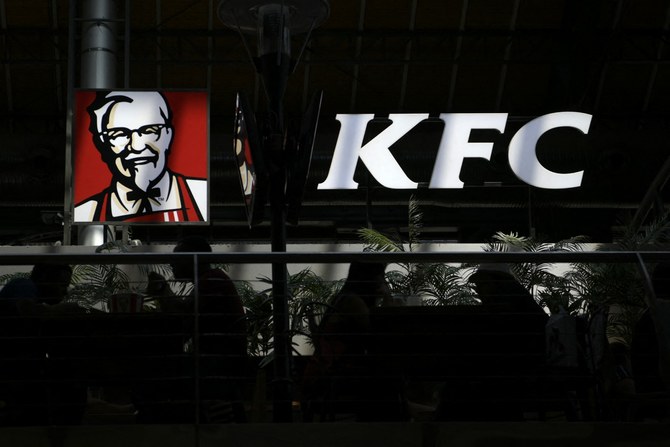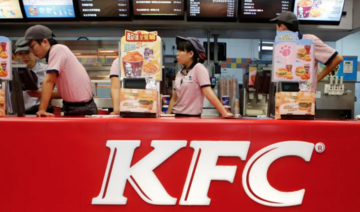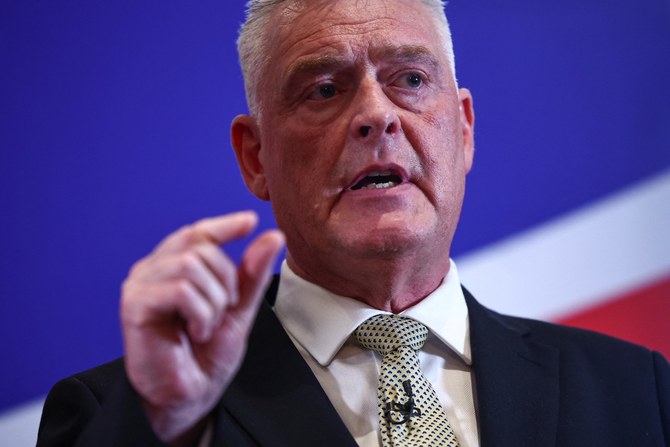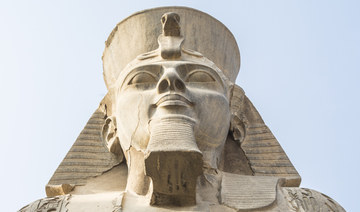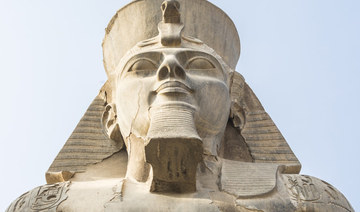PALM SPRINGS: Bubblegum pop coquette on the outside, saucy master of celebrity on the inside, there is perhaps no current star better at re-fashioning her own trials into larger-than-life success than Ariana Grande.
While suffering a highly publicized burst of personal and professional upheaval — the deadly 2017 Manchester bombing at one of her concerts, the suicide of her ex-boyfriend rapper Mac Miller, the demise of her whirlwind engagement to comedian Pete Davidson — Grande has proven poised in the face of tragedy and a deft manipulator of her own image, all while catapulting to global stardom.
Grande’s adept use of social media to slam her naysayers, drum up support from her “Arianator” fans and flirt with the gossip machine has created the perception that only she is in the driver’s seat.
After a resounding year of hits that saw industry tracker Billboard name the 25-year-old teen idol its 2018 woman of the year, Grande is set to headline a number of major festivals as part of her global tour, including this weekend’s influential Coachella lineup.
She’s just the fourth solo woman to headline the premier festival in the California desert — and the youngest artist ever to nab the coveted spot.
The feat comes after Grande shattered a number of US chart records and released two albums in six months, feeding the streaming beast with earworms while carving out her own version of the modern female pop star.
A Floridian by birth, the petite Italian-American Grande moved to New York as a teen for a spot on Broadway before finding fame on US kids network Nickelodeon.
She forayed into pop music shortly thereafter, releasing her debut studio album to commercial success in 2013.
A fan of miniskirts rarely seen without her signature ponytail snaking down past her hips, Grande had all the makings of a teen pop droid — batting her eyelashes and pouting her lips while wielding her impressive four-octave range to deliver saccharine lyrics.
But in recent years the superstar has co-opted that traditional ingenue image, adding a heavy dose of sex appeal and a biting demand for control.
In 2015 she issued a feminist manifesto attacking the public appetite for news on her personal life and those of other women.
And while last year’s “Sweetener” album — released in the midst of Grande’s turmoil — felt like an optimistic catharsis, her rapid follow-up “Thank U, Next” saw the star baring but owning her vulnerabilities, declaring this the year of Ariana.
Yet Grande’s celebration of feminine power while simultaneously flaunting her sexuality and pinning her art to her tumultuous love life has drawn criticism that she is propping up the very double standards she seeks to destroy.
Her hit “God is a Woman,” hailed as a coming-of-age empowerment anthem, was also derided as embracing tropes of women catering to male pleasure.
“In 2018, at the height of the #MeToo movement and when women are trying (and succeeding) at rising above our worth being tethered to our sexuality, this is the last thing we need,” wrote Erin Parker for the pop culture magazine Nylon.
Jacqueline Warwick, a scholar of music and gender studies at Canada’s Dalhousie University, agreed that Grande’s feminist bent can “feel a little hollow,” saying the star is “playing into these very conventional ways of looking at women’s bodies — and that seems certainly very well worn.”
But Warwick said Grande also “is articulating desire and speaking very frankly and candidly about her sexual pleasure — that’s certainly refreshing and possibly empowering.”
“It’s not easy for young women artists to be taken seriously and be successful in a pop medium without doing the things that she’s doing,” the academic told AFP.
In recent days Grande — often celebrated for supporting LGBT rights — was also accused of “queerbaiting,” teasing gay fans by suggesting in her new collaboration track “Monopoly” that she is bisexual.
“I think she’s certainly figured out that people are interested in her sex life — that it’s not a bad thing to keep people interested by dropping hints,” Warwick said.
Creating such buzz maintains a steady base keen for Grande’s next bop, which she’s taken to releasing whenever inspiration strikes.
She has voiced irritation with the commodified packaging of pop stars, championing the free release model more associated with hip hop artists.
“My dream has always been to ... put out music in the way that a rapper does,” Grande told Billboard recently.
“It’s just like, ‘Bruh, I just want to ... talk to my fans and sing and write music and drop it the way these boys do.’“




